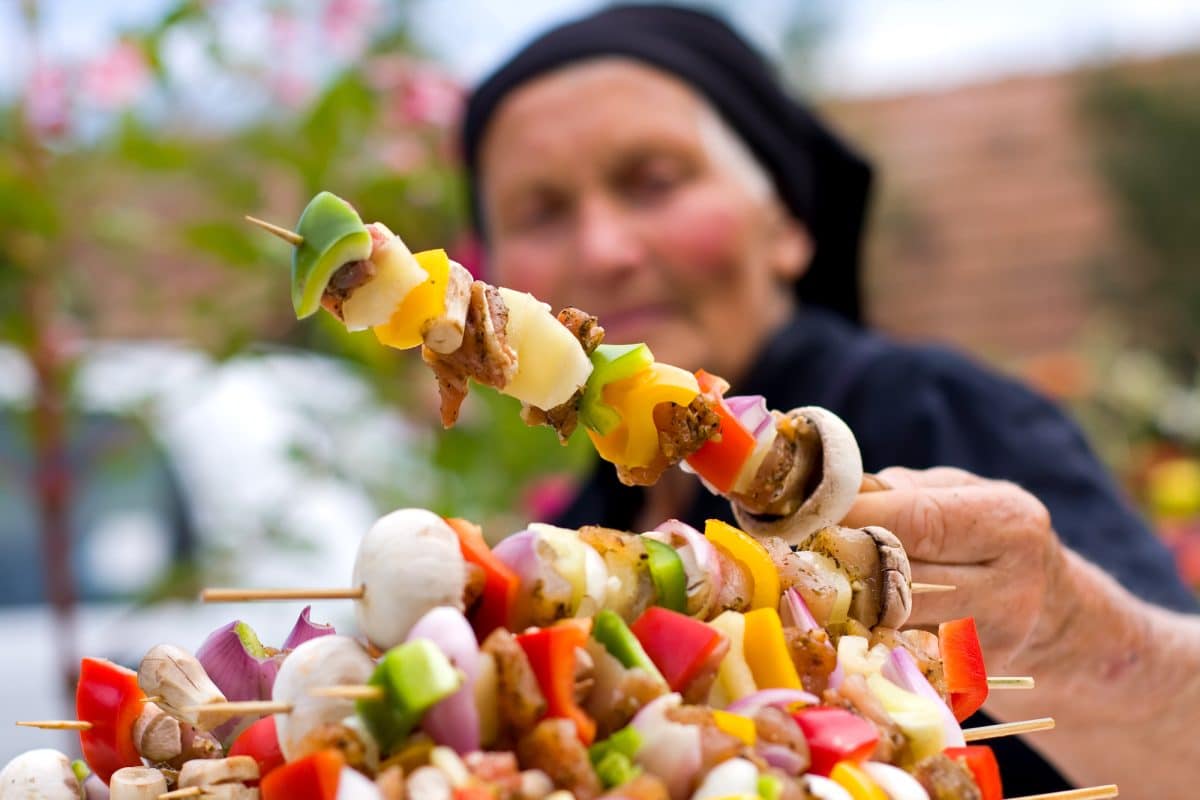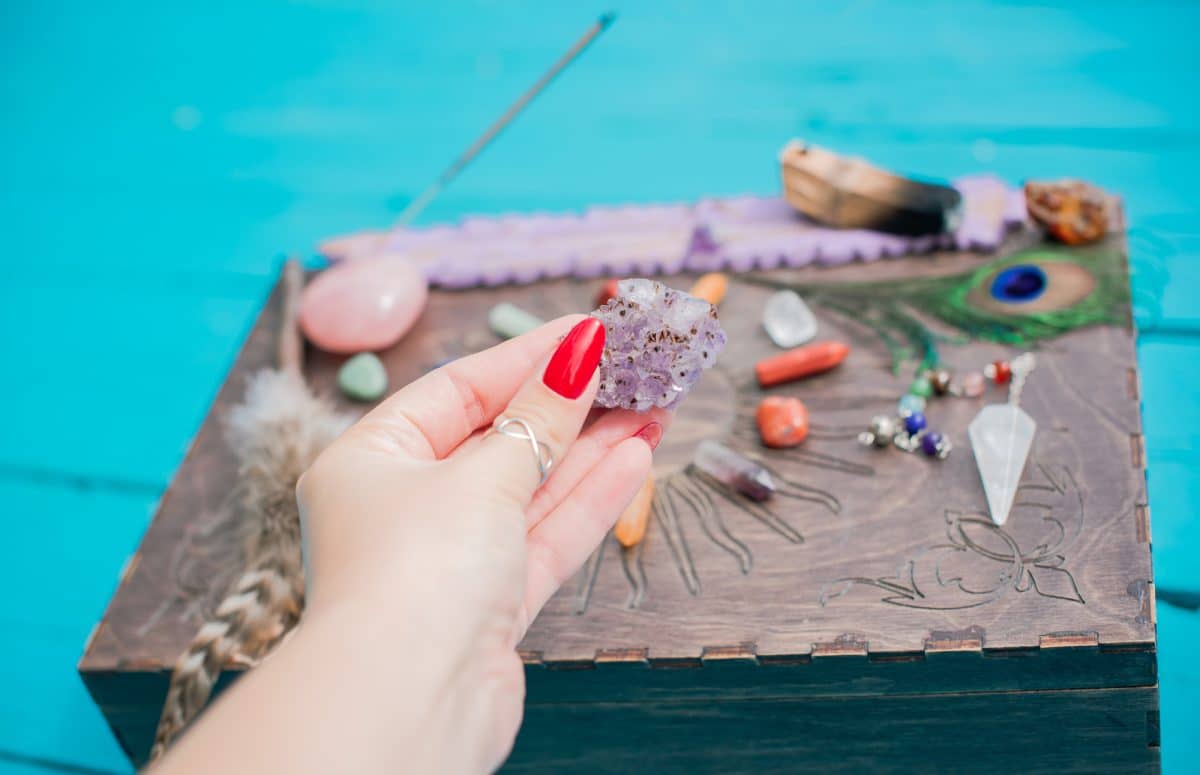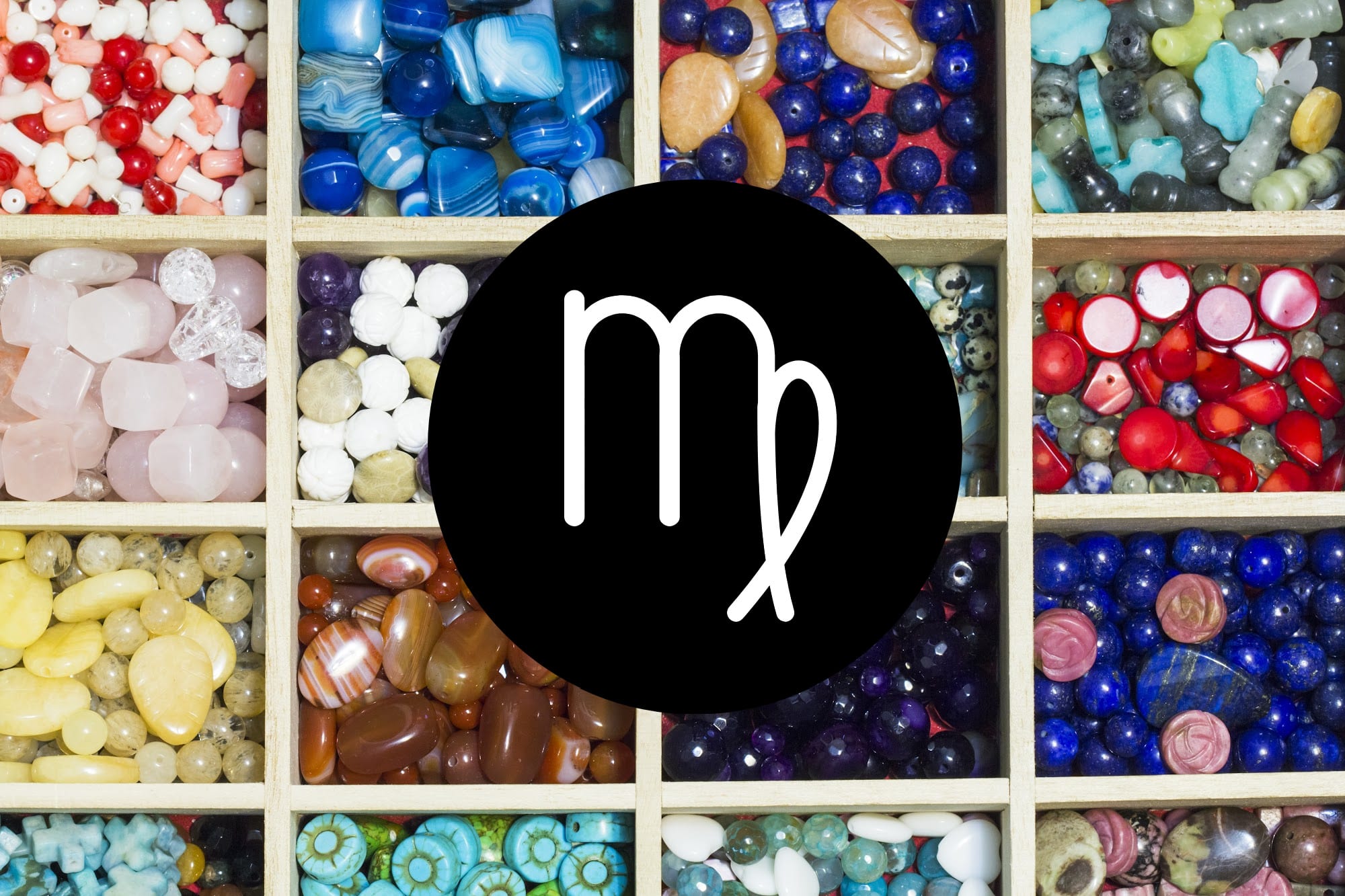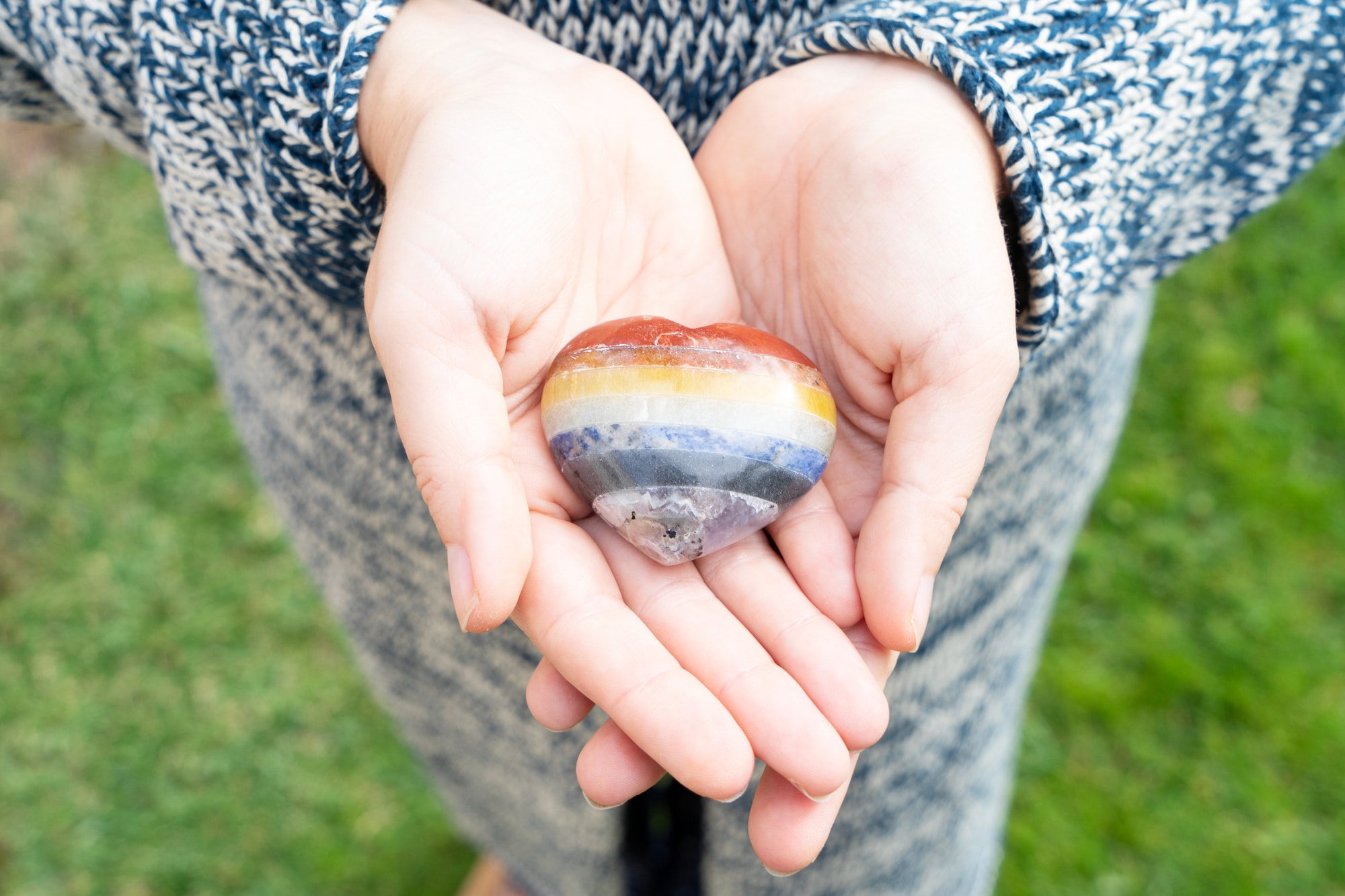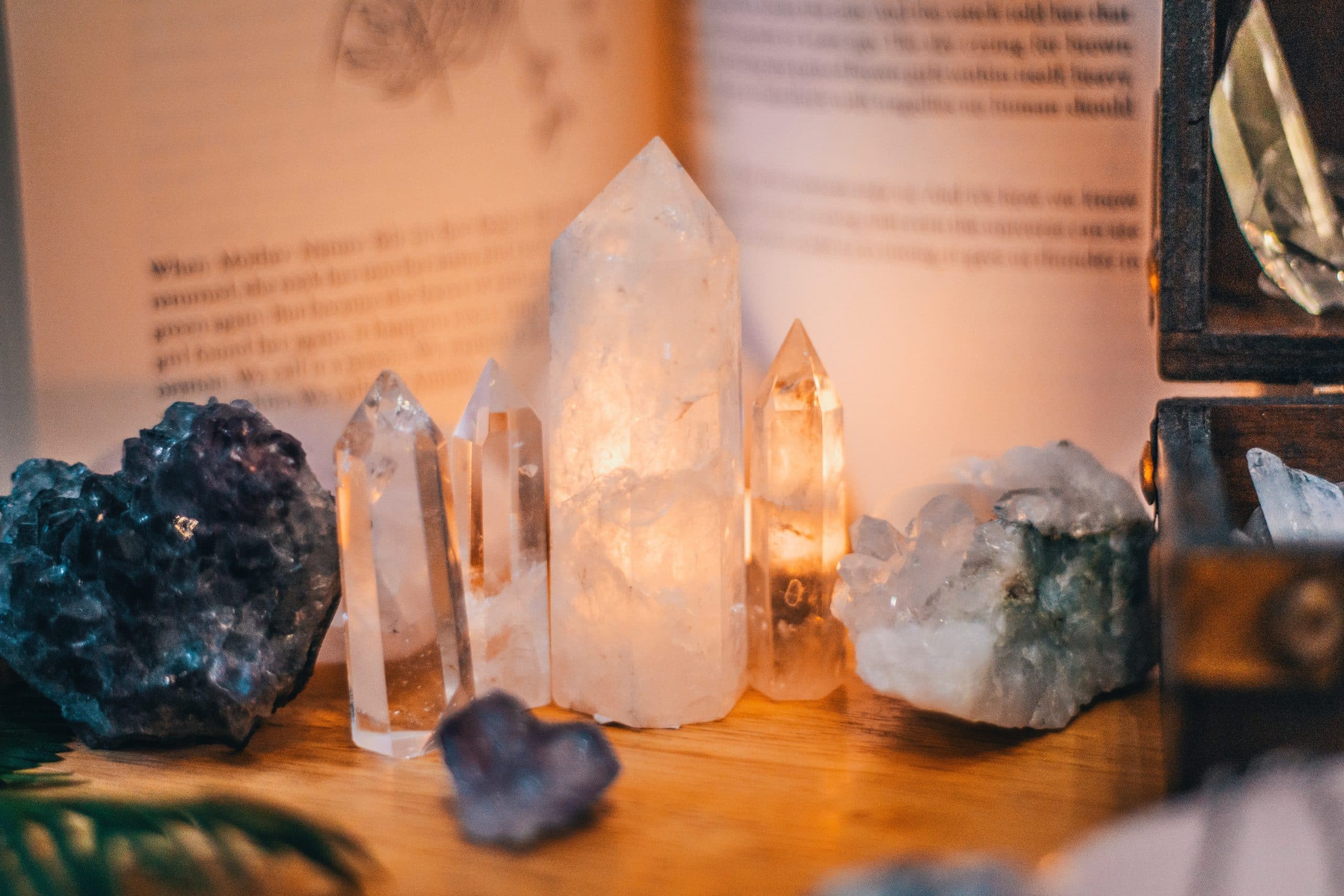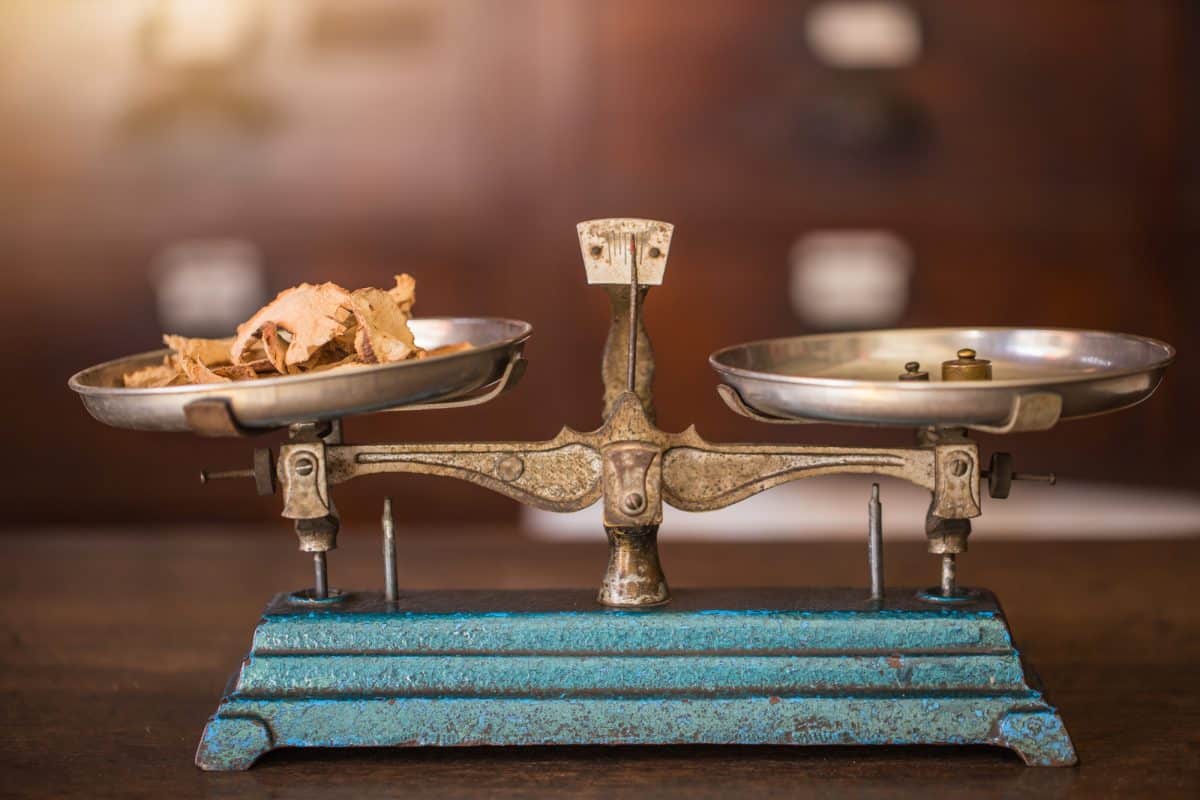How to Start Working with Herbs
I grew up in a working class, just on this side of poverty, family in the heart of a big city. Working with herbs never occurred to anyone in my family or in my neighborhood as far as I know.
We ate meat and potatoes, and I mean ground beef and russet potatoes, with some flour thrown on the grease to make gravy.
My great grandmother immigrated from Scotland at the turn of the century, married a traveling salesman, and then raised four children during the Great Depression virtually on her own.
Whatever wisdom and witchcraft she brought with her was stunted and cut off before it could reach her children, her children’s children, and then me.
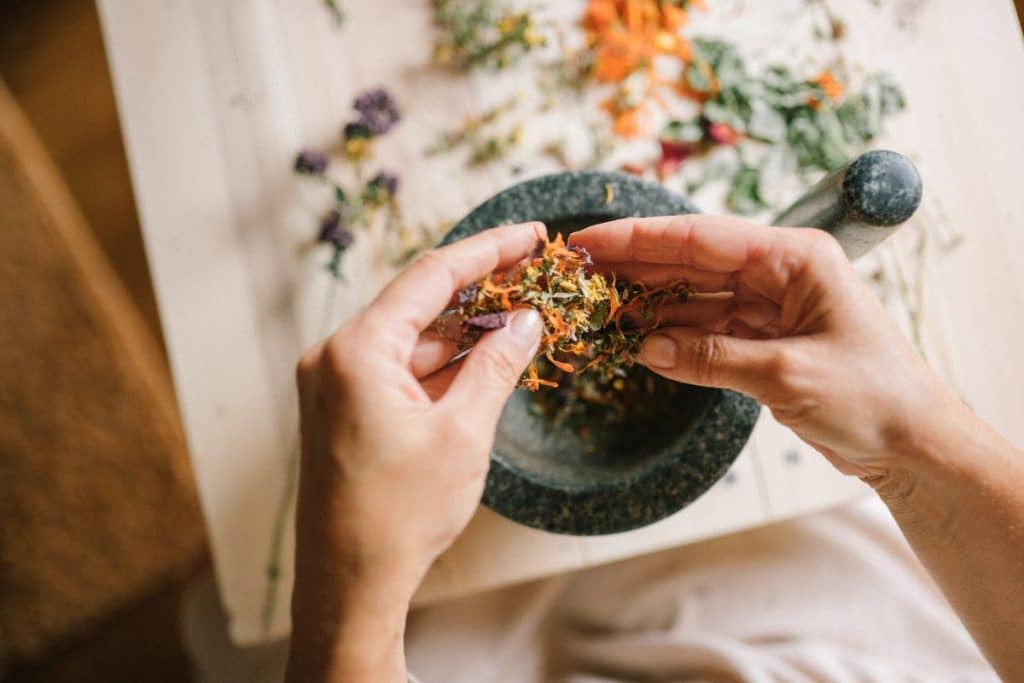
I had to find my own way to herbalism, and it was a long, long journey.
Even when I hit my twenties and began buying my own groceries in my own city, cooking my own meals in my own apartment, I had no idea what I was doing.
I tried fresh spinach for the first time and thought I was an amazing cook!
I added onions and garlic to my food and considered myself a gourmet chef.
It was honestly only after my children that I took a real interest in studying herbs.
Table of Contents
The Health Imperative
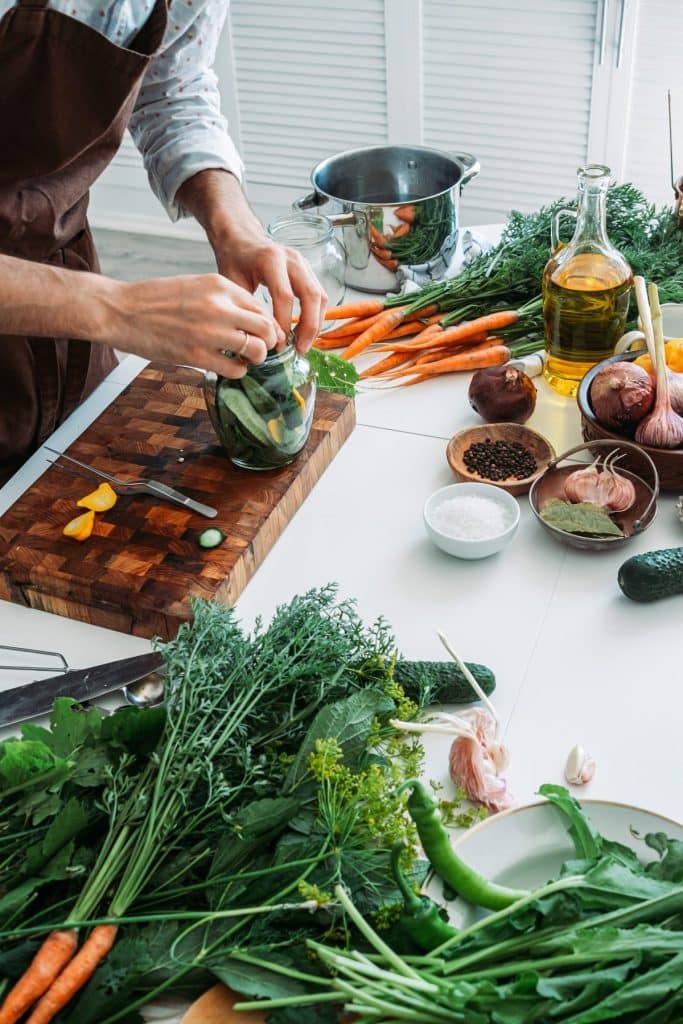
I dabbled in teas for many months in the beginning. I was living in the San Francisco Bay Area at the time, and I would visit herb shops around the bay just to see what they had.
I started simply, making lavender teas, mixing in chamomile, learning about the various flavors, aromas, and combinations.
I moved onto ginger quite quickly, discovering it was a wonder drug of sorts, and then I found turmeric.
All of this happened simply because I would try something and then wonder how I could make it.
Ginger and turmeric are both ingredients in chai, for example, so I started making a chai to sit on my stove from ayurvedic herbs.
Then I went down the rabbit hole on Ayurveda.
This is how the learning process works.
You learn one thing, you practice it, you fail, you love it or hate it, and that leads you somewhere else, something new to learn.
Then the pandemic struck.
I had just moved to the Pacific Northwest, and the entire world shut down.
None of what the media or the government were saying made much sense to me, and I was already on a journey into learning how to heal myself and my family with food and herbs and spices, so I started studying herbalism more intensely.
By the time my family got the virus, because you know everyone had to get it, I was prepared with jars of herbs, pots of soups, and platters of sauces packed with nutrient rich, immune boosting ingredients.
I have found that, if you were not raised with herbs in your life, this is usually how you come to them, through a health imperative.
Nicole Apelian, PhD, struggled with MS for many years, went through all of the classic western medicines and treatments, only to find herself getting worse and worse.
When she finally turned to herbs and spices and a special diet, she was able to not only reverse her condition but also to get off all medications.
I suffered from severe anxiety attacks, panic attacks, migraines, and stomach issues, and I worked my way to wellness with diet and exercise, mostly through the introduction of herbs and spices.
The Power of Herbs
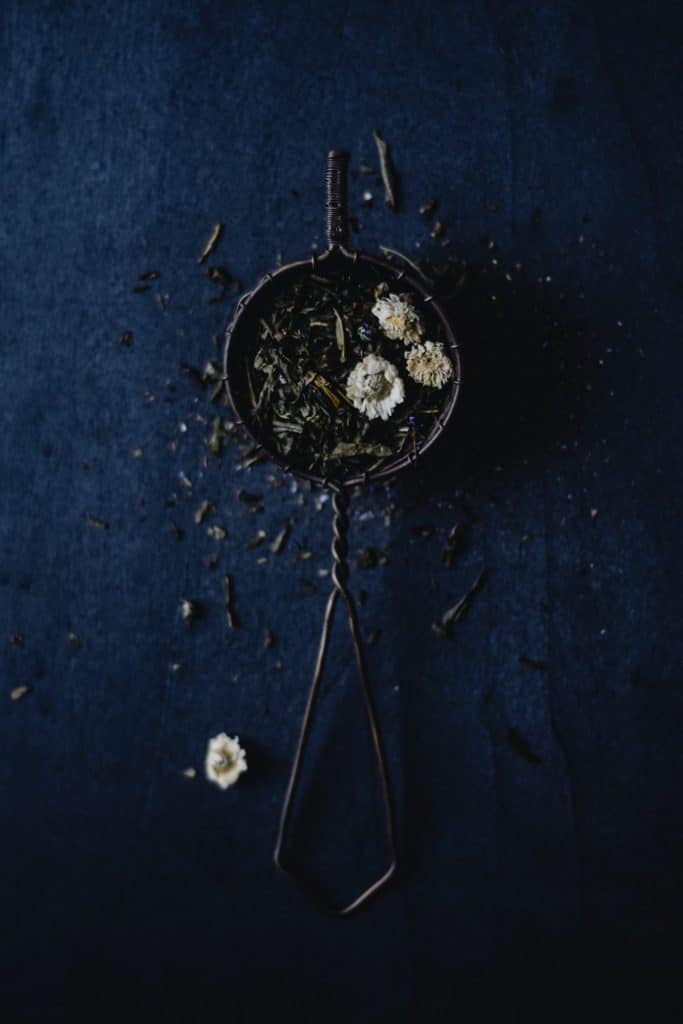
I recently spoke to a woman applying to PhD programs, interested in studying molecular biology, who found her way to those studies because her father died from multi-drug resistant tuberculosis.
She noted that, in all her years of scientific research, she has found that nature never provides a problem for which it does not also offer an even greater solution.
We already have all the answers in nature.
Sadly, there is no profit motive for corporations to tell us where those answers are, and the government is ill equipped to do it for us.
So we will have to do it ourselves.
Fortunately, we are not actually alone.
There are some amazing functional medicine doctors out there eager to help us, and they give away a lot of their information for free!
And again, interestingly enough, these doctors found their way after PhD programs in western medicine to the power of herbs and spices due to their own health imperatives, or those of the ones they loved.
Dr. Mark Hyman, my personal favorite functional medicine doctor, spends hours talking about which dietary approaches may be right for this or that condition, which herbs and spices do what, and how to treat the grocery store like a medicine cabinet.
Food is medicine.
He, like his mentor Andrew Weill, who founded his own institute on functional medicine in Arizona, talk endlessly about the power of herbs and spices as they relate not only to healing but also to longevity and prevention.
Weil notes that in his decades of study he has found that, while humans are living longer these days, we are also sicker.
So we live to be 80, but we spend the last 30 years of our lives suffering from various chronic illnesses.
And, he says, it does not have to be that way.
That is the power of herbs.
How to Start Working with Herbs
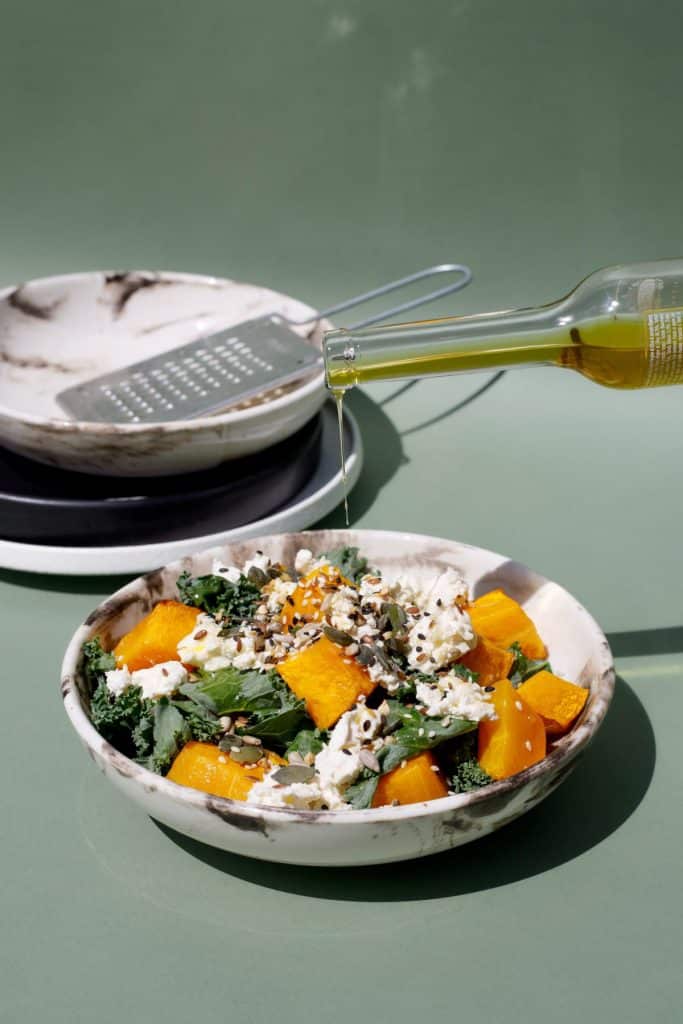
In terms of how to start working with herbs, start small.
Play around with herbs you have heard of, with lavender and chamomile, with lemon balm and echinacea.
Experiment with flavors in your dishes.
Add oregano and basil to your sauces, and bay leaves to your soups.
And I cannot say enough about reading books on herbs.
I love The Green Witch by Arin Murphy-Hiscock, and you can also pick up anything on food by Dr. Mark Hyman. Also the Lost Book of Herbal Remedies by Nicole Apelian.
A lot of these books, any good books, really, will tell you to experiment, to explore, to forage.
Did you know that dandelion is packed with vitamin C? Or that pine needles are great for respiration?
There are likely dozens of herbs and plants that will energize you and make you feel great right outside your front door.
I put a sprig of rosemary in my mushroom coffee every morning because it is a brain booster.
You can take herbs in any direction, and you can do so much with them, from making teas to mixing soups and pastas to inhaling their mist in a humidifier or even a warm, misty bathroom.
In this time of heightened sensitivity to illness and a lack of real insight from our medical establishment, it can only do us good to return to a time we once relied on, home remedies and a knowledge and wisdom about the ways in which our bodies function and which herbs work best to facilitate that process, whether to promote wellness or to overcome illness.
Be open, be curious, and be brave.
Which Herbs to Start with
To start stocking your “medicine” cabinet today, head to your local herb store or natural food store, and look for:
Lavender
A calming herb that will help you settle down at the end of the day.
It has also been shown to treat skin blemishes, alleviate pain, and reduce blood pressure as well as relieve asthma symptoms.
Chamomile
Another relaxing herb, chamomile will also aid in digestion, so it has been used to treat the full range of digestive issues from indigestion to diarrhea.
It has also been used to treat fevers in children.
Lemon Balm
Still another calming herb, lemon balm is from the mint family and promotes sleep as well as improves appetite and helps with digestion.
Ashwagandha
I add this one to the other three above and allow to steep for 10 minutes every night for a total nervous system reset.
This amazing root has been shown to increase muscle strength, improve sexual function and fertility, sharpen focus and memory, and support heart health.
Ginger
Ginger is a super food. Not an herb, but a root, so, same difference.
It has antioxidant, antidiabetes, anti-inflammatory, anticancer, weight-loss-friendly, and brain and heart protective effects.
Really?
Boil some ginger in water and add honey and lemon every single day!
Turmeric
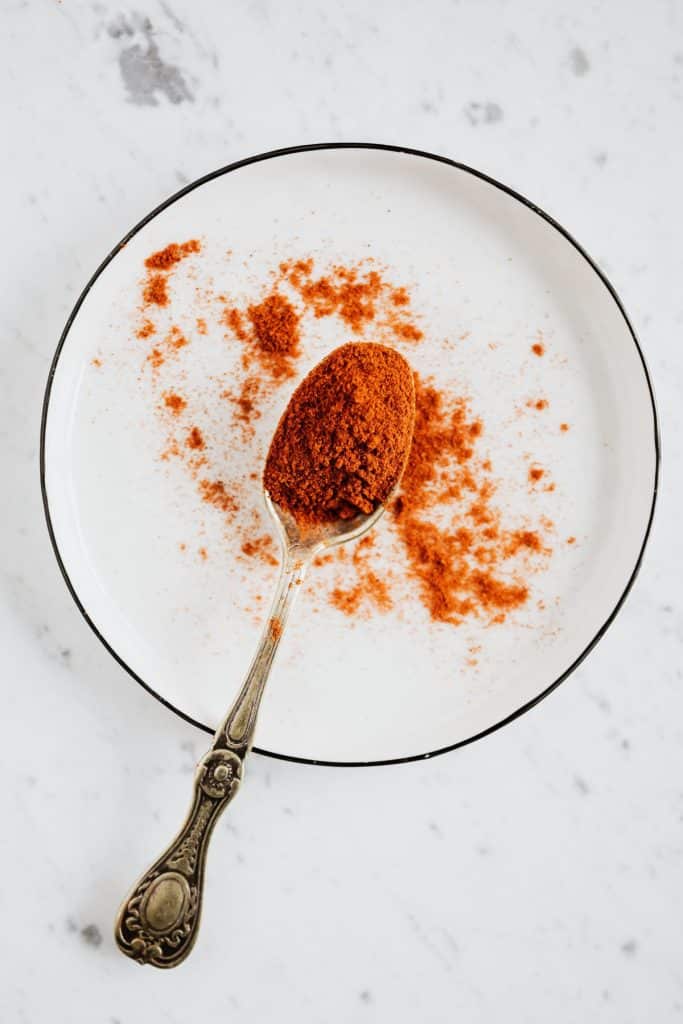
And if you’re feeling adventurous, add some turmeric to your ginger tea for still more of the above benefits you get from ginger plus help with respiratory infections, allergies, liver disease, and depression.
Be sure to add a bit of black pepper to fully unlock the benefits of turmeric.
Self-Healing and Self Teaching
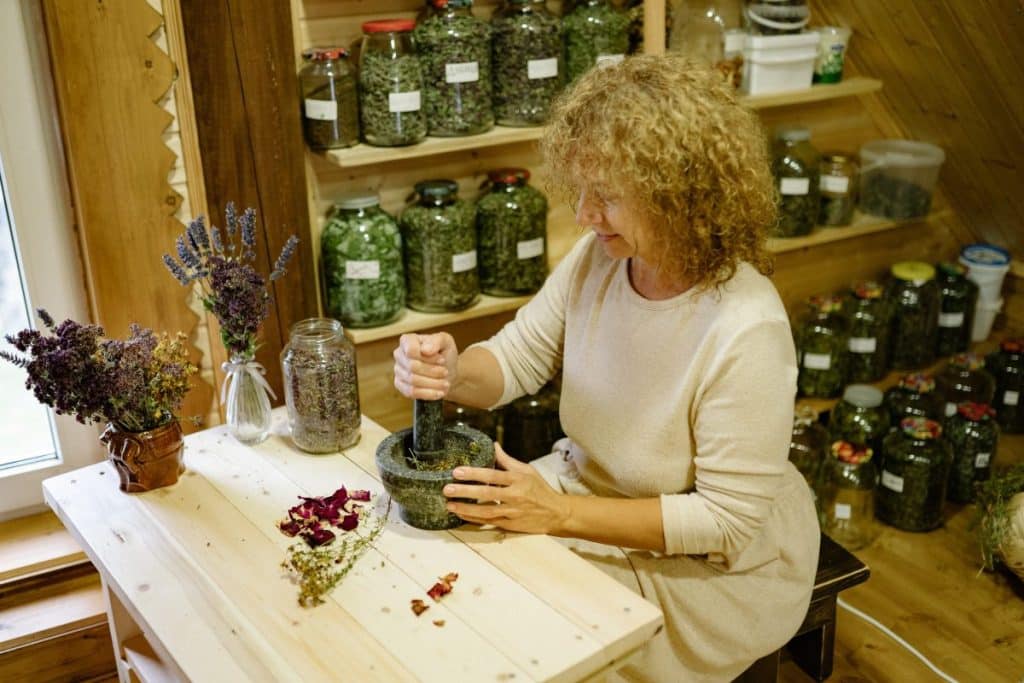
In the end, it is up to each one of us to heal ourselves and to teach ourselves how our bodies work and how to help them meet optimal levels of health.
Only you really know your body, and only you will deal with the full extent of the consequences of being ill, especially chronically.
So take it upon yourself to beef up on your herbalism and start building your “medicine” cabinet today.
Happy manifesting!

